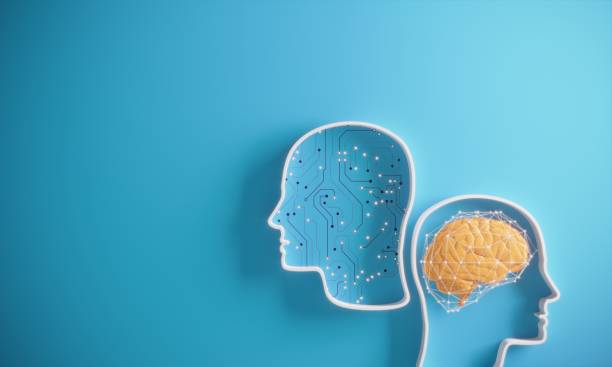The future is often seen as a time of hope and opportunity. But it can also be viewed with trepidation, particularly when considering the rapid pace of change in our world. Who will emerge victorious in this uncertain future? And what does this mean for the rest of us?
In this blog post, we’ll explore these questions in depth. We’ll start by looking at the changing world and the impact of technology on society. We’ll then examine the possibilities of who might emerge victorious in this unsettled future. Finally, we’ll offer some strategies for preparing for the challenges ahead.
The Changing World: What Does the Future Hold.
The rapid pace of technological change is having a profound impact on our societies. Increasingly, technology is shaping how we live, work and interact with each other. It is also changing the nature of many industries and the way we consume goods and services.
In particular, the rise of digital technologies – such as artificial intelligence (AI), robotics, the internet of things (IoT) and 3D printing – is transforming economies and labour markets. It is estimated that by 2030, as many as 30% of jobs could be displaced by automation[1]. This represents a significant challenge for workers, who will need to adapt their skillsets to stay relevant in a changing workplace.
At the same time, technology can also create new opportunities for employment and economic growth. For example, the development of autonomous vehicles could lead to the creation of new jobs in transportation and mobility[2]. As such, it is important to consider both the risks and opportunities posed by technological change when planning for the future.
Increasing Social and Political Disparities.
In addition to affecting economies and labour markets, technological change is also having a profound impact on society at large. One notable trend is the increasing disparity between those who have access to technology and those who do not. This ‘digital divide’ has implications for social cohesion and economic inequality[3].
Furthermore, as technology becomes more sophisticated, there is a risk that it could be used to exacerbate social divisions or even be weaponized against us[4]. For example, AI-powered facial recognition systems are already being used by some police forces around the world[5], but they have been shown to be biased against certain groups[6]. If left unchecked, these sorts of applications could have alarming implications for civil liberties.
It is therefore crucial that we carefully consider how new technologies are deployed in society, lest we inadvertently exacerbates existing social tensions or creates new ones.
Exploring the Possibilities of Who Will Emerge Victorious.
In a rapidly changing world, it is the established powers who are most likely to maintain control. These are the countries with the resources and infrastructure necessary to adapt to changes quickly and effectively. They also have the political and economic stability that enables them to weather crises without major disruptions.
The United States is currently the preeminent superpower, and it is unlikely that this will change in the near future. The country has a strong economy, a large military, and influential allies around the world. It also has a long history of successfully navigating periods of change. For example, after World War II, the United States helped rebuild Europe and Japan, maintaining its position as a global leader.
China is another example of an established power that is likely to maintain its influence in the coming years. The country has experienced rapid economic growth in recent decades, becoming home to some of the world’s largest companies and most populous cities. It also has a large population that gives it significant political clout on the global stage. Additionally, China’s One Belt One Road initiative is helping to increase its economic reach even further.
While established powers are well-positioned to maintain their influence in the future, they will not be able to do so without challenges. In particular, they will need to contend with rising powers such as India and Brazil, which are quickly closing the economic gap between themselves and developed nations. Additionally, populist movements around the world could upend traditional power structures if they gain enough traction.
The Roles of Emerging Nations.
Emerging nations are likely to play an important role in shaping the future of global politics and economics. These countries are experiencing rapid growth and development, often at rates far exceeding those of developed nations. As such, they have considerable potential to shape the future direction of both their own countries and the world at large.
India is one of the most populous countries in the world and is projected to be one of the fastest-growing economies over the next few years. The country has already made considerable strides in reducing poverty and improving education levels; however, it still faces significant challenges such as infrastructure development and environmental protection. Nonetheless, India’s vast population and growing economy make it an increasingly important player on the global stage.
Brazil is another example of an emerging nation that is likely to have a significant impact on global affairs in coming years. The country has undergone rapid economic growth in recent years thanks largely to its booming agriculture sector; however, this growth has been unevenly distributed, leading to increased inequality levels . Additionally , Brazil faces significant environmental challenges , including deforestation . Despite these challenges , Brazil’s strategic location , natural resources , any many other factors make it an important player on both regional any global scales .
The Game-Changing Potential Of Artificial Intelligence
As artificial intelligence (AI) technology continues to develop rapidly , its potential applications become more diverse – an many disruptive . AI could potentially be used for everything from automating routine tasks too enhancing human cognitive abilities . However , perhaps most significantly , AI could eventually lead too completely new forms off intelligent life existing alongside humans . While this may sound like something out off science fiction movie , there are already signs that this scenario might not be too far off from reality .
Preparing for the Unsettled Future.
As the world becomes increasingly unsettled, it is important for companies and governments to develop strategies to adapt. Some steps that organizations can take include:
-Diversifying supply chains to reduce dependence on any one country or region.
-Developing contingency plans for disruptions in key areas such as transportation, energy, and food production.
-Investing in research and development to anticipate and prepare for new technologies that could upend existing business models.
-Educating employees on how to spot fake news and propaganda, and critical thinking skills to make informed decisions.
What Can Individuals Do to Prepare.
Individuals can also take steps to prepare for an unsettled future. Some suggestions include:
-Learning new skills that will be in demand in the future economy.
-Building a diverse network of contacts around the world.
-Staying informed about global developments and trends.
-Practicing mindfulness and other stress-reduction techniques to stay resilient in the face of change.
Conclusion
The future is looking increasingly uncertain and unsettled. With technology continuing to advance, established powers struggling to maintain control, and new players such as artificial intelligence entering the fray, it’s hard to predict who will come out on top.
Companies and governments need to be prepared for this uncertain future by strategies that enable them to adapt and respond quickly to change. Individuals also need to be aware of the potential risks and opportunities that lie ahead, so that they can make the most of whatever comes their way.
In an unsettled future, it’s important to stay flexible, informed, and ready for anything.


